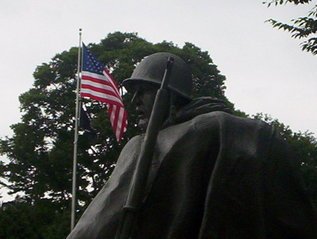Attention, United States military veterans! As of October 18, 2018, there are new rules governing Veterans’ Aid and Attendance (A&A) benefits that you need to know.
A&A Basics
First, let’s look at the basic principle behind A&A allowances. A&A is additional money you may receive if you are eligible for a VA pension and require the help of another person daily, OR you are housebound. Housebound benefits are an increased monthly pension amount that may be added to your monthly pension amount when you are substantially confined to your immediate premises because of permanent disability.
A&A and Housebound benefits are paid in addition to monthly pension. Because both A&A and Housebound allowances increase your pension amount, people who are not eligible for a basic pension due to excessive income may be eligible for pension at these increased rates. However, a veteran or surviving spouse may not receive A&A benefits and Housebound benefits at the same time.
The A&A increased monthly pension amount may be added to your monthly pension amount if you meet one of the following conditions:
- You require the aid of another person to perform personal functions required in everyday living, such as bathing, feeding, dressing, attending to the wants of nature, adjusting prosthetic devices, or protecting yourself from the hazards of your daily environment
- You are bedridden, in that your disability or disabilities requires that you remain in bed apart from any prescribed course of convalescence or treatment
- You are a patient in a nursing home due to mental or physical incapacity
- Your eyesight is limited to a corrected 5/200 visual acuity or less in both eyes; or concentric contraction of the visual field to 5 degrees or less.
(See https://www.benefits.va.gov/PENSION/aid_attendance_housebound.asp for more information.)
Changes to A&A, effective October 18, 2018
- The VA asset look back rule: In determining a veterans’ eligibility for Aid and Attendance benefits, the VA will only look back for up for up to three years. Looking back means that during this time-frame immediately preceding a veteran’s application date, the VA checks to ensure no assets were given away or sold under fair market value. If they find any such transactions, it will be assumed the assets were gifted or sold in order to meet the new net worth limit of $123,600 and there will be a period of VA pension ineligibility. Please note: transfers made prior to 10/18/18 do not violate this new look back rule. Another exception is if the applicant transferred assets, but never had assets in excess of $123,600. If this is the case, these transfers do not violate the look back period.To qualify for the Aid and Attendance benefit and other pensions, the VA will look at the applicant’s overall net worth (assets) in addition to their income. A veteran’s net worth, according to the VA, includes bank accounts, stocks and bonds, mutual funds, property other than the veteran’s primary residence and vehicle. Note: Primary residence, vehicle, household goods, furnishings and personal items, such as clothing, are not included as overall assets.
- A maximum net worth limit of $123,600 became effective October 18, 2018; prior to this date, there was no asset threshold. This limit is the same for single and married applicants.
- A veteran’s annual income (after deducting non-reimbursed medical expenses) will be added to their net worth.
If you are a veteran and considering applying for benefits, and assets are above $123,600, it is strongly recommended that you consult with a veterans’ pension planner prior to application to ensure the greatest possibility of acceptance. (See https://tinyurl.com/hvl4rqd)
If you need legal assistance with veterans’ benefits, managing an estate, trust or other elder law issue, the Law Office of Scott C. Painter can help. We specialize in elder law issues ranging from nursing home planning, guardianship, wills, trusts, estates, veterans’ benefits, and other related legal matters. A call to us is free, and the best advice is to act now to educate yourself and your options. Waiting to seek legal counsel may limit your options and be costly. Call now for your free consultation 610-378-5140 or visit https://painterelderlawpc.com/ for more information.
